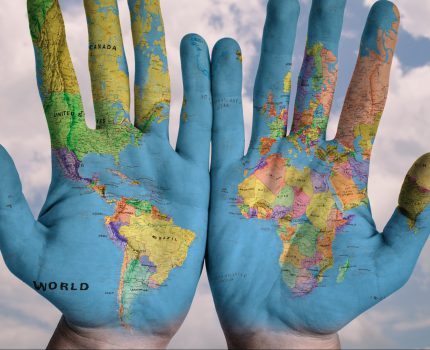Driven by recent events in my home region, this blog post explores why balanced media coverage is essential for effective humanitarian response in crises, such as the recent floods and landslides in the neighboring country of Bosnia and Herzegovina. On 3 and 4 October, these disasters led to the deaths of 27 people, impacted 1,133 households, and caused many to lose their property and assets. In situations requiring humanitarian aid, it is essential for journalistic reporting to remain both ethical and respectful toward affected communities, enabling the public to engage in an informed and supportive way. Despite this, high-interest disasters are often reported with an exaggerated focus on shock value over substance to capture audience attention and drive engagement. This tendency was evident in some regional media coverage of this particular event, placing heavy emphasis on distressing details.
Sensationalism in Crisis Reporting: How Does It Shape Public Perception?
Some articles included overly dramatic expressions aimed at shock value. Examples include hyperbolic phrases such as “a flood of biblical proportions” or “apocalyptic scenes,” implying end-of-the-world scenarios. While it’s important to convey the severity and impact of such events, this kind of language can overshadow factual reporting by amplifying the emotional weight of the tragedy. Although it may initially capture attention, the audience may come to view the crisis as so severe that any assistance seems futile, resulting in decreased empathy and constructive responses.
Another example is media reports including photos taken from victims’ social media, which can appear exploitative, especially when it’s unclear if the families’ consent was obtained or if they were considered in this practice. Use of graphic details or images can contribute to passive consumption of tragedy, leading to “disaster fatigue,” overwhelming readers emotionally rather than informing and empowering them to offer support.
Lastly, some articles feature video coverage with emotive commentary and visuals depicting the destruction. While this type of coverage can be valuable for conveying the severity of events, it is important to carefully consider the tone and presentation to ensure a focus remains on respectfully informing viewers about ongoing recovery efforts. This type of reporting can be distressing for the families and friends of victims and affected communities, especially when sensitivity toward their situation is lacking.
Media’s Role as a Bridge from Awareness to Support
The highlighted examples illustrate some sensationalist reporting practices that can ultimately backfire and lead to audience desensitization. Media representations are crucial in mobilizing resources and support for humanitarian actors (Roth et al. 2024, p.10). Thus, it is essential to emphasize the need for balanced and responsible media coverage. In crisis reporting, the media serves as a bridge between awareness and support, not only by highlighting immediate needs but also in fostering sustained support for long-term recovery and rebuilding after the devastating impacts of humanitarian crises.
Eni Buric


The topic you have decided to write about here is very interesting and I think it is a common practice a lot conventional media, such as television follow in different countries. The part where you mention “apocalyptic scenes” and “biblical proportions” reminds me of lines news presenters in Greece tend to use when they present disasters of any kind, may they be natural, finacial, war related and so on.
The results of sensitising news presentation have been people rushing to the super markets and emptying them from food, toilet paper and all the necessary products. I remember vividly when there we had capital controls in 2015 people standing in long queues in front of the ATMs in order to withdraw the amount they were allowed to, not because they needed it, but mainly because the media had cultivated a sense of fear and despair.
Likewise, during the covid quarantine there was no vinegar and detergents in the supermarkets as people bought them in large amounts in case they run out of them.
Broadly speaking, mass media tapping into people’s sentiments and especially fear, has only negative implications, and thus maintaining a neutral and objective attitude is essential!
Couldn’t agree more, Panagiotis. That’s exactly what journalism should focus on, not instilling fear or hopelessness in challenging situations. I’m also very familiar with the behavior you described during covid quarantine, the only difference being different products became the focus of panic buying. This is a great example of how media sensationalism can be detrimental.